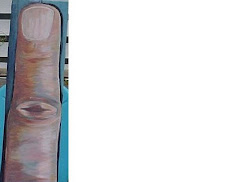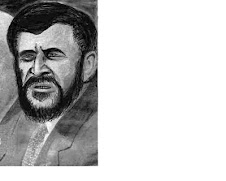Saturday, December 15, 2012
The Spin on Spinoza
In an article written for the San Francisco Chronicle on January 6, 2006, Lisa Montanarilli reviewed Matthew Stewart's Norton-published, "The Courtier and the Heretic -Leibniz, Spinoza and the Fate of God in the Modern World". The courtier, representing Hierarchy, divine right of kings, and monarchy, is, of course, Leibniz, while the heretic is, naturally, Spinoza, the only Jew ever excommunicated, thanks to, among other things, his assertion of a non-anthropomorphic deity.
Montanarilli's review is about the duel or dispute between the two philosophers, as that is the author's approach, but what interested me more about the schism is its similarity to the modern-day tremors that threaten to crumble the entire out-dated Central Banking regime. Pitting God vs nature, religion vs science, monarchy vs republicanism, Spinoza and Leibniz argue from different corners of the ring, from different socio-economic foundations and ideological aspirations; Leibniz's being, as all courtiers, a somewhat craven, obsequious, self-indulgent worshiper of authority and cringing fawn of Power, whereas Spinoza, being "perhaps the first to see that the medieval theocratic order was crumbling", depended on insight and painstaking research to forge a theory that would unify the disparate philosophies and weld the seeming dichotomies of science and religion into a single edifice by attempting to prove, mathematically, that mental and physical phenomena are attributes of a single substance.
From Spinoza's point of view, there is only one substance: God, which, far from being separate from nature, is Nature. On the contrary, the anthropomorphic, Judeo-Christian god championed by Leibniz is a prop of theocratic tyranny, specifically designed to give divine sanction to the hierarchical ruling structure of Master/slave, King/subject, with that special feudalistic twist whereby the slaves are responsible for their own upkeep, but their labor is owned and directed by their liege. Contrariwise, Spinoza thought, as early as the 17'th century no less, that citizens should enjoy freedom of belief and speech, because, since the human mind is a part of the infinite intellect of god, when it perceives this or that thing, it is the same as saying that god had this or that idea.
Leibniz was scandalized, although secretly intrigued, by this notion, being convinced instead, that any god worthy of the name must transcend nature and exercise reason and free will, in other words, hold themselves Above the law. The god of the judeo-christian faith not being himself subject to his own laws, neither are the upholders of it on earth subject to their own laws: "L'Etat, C'est moi". A perspective that niceley fit into the monarchical archetype, allowing the powerful to lay claim over the lives of their subjects. Although Montanarilli feels that Stewart divides the philosophers into opposing camps, whereas the relationship between them was much more complex. Spinoza speaks for those who believe that happiness and virtue are possible with nothing more than what we have in our hands; Leibniz is convinced that happiness and virtue depend on the realm of the supernatural and a fantasized afterlife, which dovetails nicely into the present debate over the role of Central Bankers, each independently manipulating their Sovereign's economies, and the role of money as the physical manifestation of individual ideation.
While Spinoza argues that there is only one substance, Leibniz claims there are infinitely many substances called "monads", with a human consisting of a mind monad and a cluster of body monads; each one of these monads is windowless, whereby it can't see out, and others can't see in. Given the fact that money, although physical, is a manifestation of an idea, in that it represents something other than the paper it's printed on, it can easily therefore, be seen as congruent with Spinoza'a substance. The monads of which Leibniz speaks, are just as simply comparable to the world's Central Banks, the opaque structure of which ensures that no one "sees in", and whose blindness to the reality of their respective economies, strongly suggest that they certaintly never bother to "see out". The structure of fractional reserve banking's similarity with Leibniz's "cluster of body monads" makes the analogy complete.
And just as the Monarchy ruled then, but only with the iron fist of the Church around its throat, so the Central Banks have slapped an iron collar around the not-so-Sovereign states. This choke collar makes the reality of who is actually in charge more apparent than its been for generations. But just as the Church's hold cracked and its centuries-old iron shattered, the Central Bank's hold and control over the substance, money, is proving to be just as much in peril.
The Church was able to maintain control so long as they could provide a reasonable level of existence, but when the scientific nature of the world become apparent and the constrained material existence of the peasants was shown to be one that was contrived in order, not to assure their entry into a fantasized after-life, but to, instead, allow the monarchy and its courtly denizens to squeeze the life out of their subjects and, succubus-like, suck dry their very essence for their own enjoyment, so the modern financial collapse and depression is showing workers that promised pensions and after-work life is a chimera cynically held out to them with no intention of ever delivering, but instead used to extort an ever-increasing fraction of their wages for the sole purpose of feeding the insatiable maw of the power elite whose members are, for the most part, direct descendents of the very monarchs and succubi of old.
When the monads will be dismantled, and the substance the populace uses and created will come back into their hands and subject to their control, with local currencies powering local initiatives and livelihoods, nurturing small businesses more responsive to their everyday needs, is still an open question. But the fact that the old modality is broken and has no idea how to resurrect itself from the ashes of its self-engendered collapse is simply reality. The fact that it's so assiduously denied and subject to pseudo-profound Hayek vs.Keynesian debate is merely the intellectual equivalent to the Punch and Judy shows so effective at distracting the masses from the real drudgery, usually referred to as austerity, that they unnecessarily face.
Subscribe to:
Post Comments (Atom)



















































No comments:
Post a Comment